Your history doesn’t determine you—your present does. Washing away your history isn’t about lying about the past; it’s about re-writing the role those moments play in your life. Every human being has pages they wish they could burn: embarrassing decisions, regretful relationships, missed opportunities, or maybe even darker pages that haunt them. These memories hold us back and immobilize us, keeping us from developing and being joyful. But the truth is, here, just because you can’t truly eliminate your past doesn’t mean that you can’t get rid of its hold over your future. Removing your past begins with acknowledging, not forgetting. You will need to have the courage to let go of the experience and behavior that you no longer require, take ownership where it is necessary, and then deliberately decide to let it go. That’s where the true change starts. By leaving behind the labels and limiting beliefs of your past, you regain the power to create your identity in the future.
To completely wipe away your past, forgiveness has to come front and center. And that is forgiving yourself, too. We are always more critical of ourselves than we would be of a stranger. Self-forgiveness is not weakness—it’s a work of strength. It says, “I did something wrong, I learned from it, and now I’m letting it go.” That is the mental space that frees you from shame and guilt, two of the strongest grips on the past. Release people as well. Holding grudges against people keeps you tied up in their business, something you’re best to avoid keeping on hand. The process of forgiveness doesn’t mean that you approve of hurtful behavior; it means that you won’t allow that hurt to continue to fuel your thinking. Forgiveness, when it’s activated, creates room for healing. That healing enables you to create a new map in your mind that is positive to who you are today and who you’ll be tomorrow. The process may include journaling, therapy, meditation, or even environmental change, habits, and social circles. All of these transformations serve one purpose: to align your life according to your current values, not former mistakes.
Now that you’ve let go and embraced your past, let’s do something with the present and future. That’s where the real power is. Mindfulness allows you to anchor yourself in the here and now, and it’s more difficult for old stories to seep in. Mindfulness is not meditation—it’s being present in your life. It’s in choosing to show up for yourself, to make decisions based on who you are right now. Goal-setting becomes a vital tool here. Set tangible, specific goals aligned with the version of yourself that you’re becoming. If it’s a new professional path, improved relationships, or healthier routines, your goals should be the life you now want to live. Be around people who encourage your forward motion, not those who keep drawing you back into the familiar. Environments can become identity-shaping—so put yourself in places that become more likely to notice you still being that new person. Ultimately, to wipe away your past is to step boldly into your future, one genuine decision at a time.
Frequently Asked Questions (FAQ)
Q1: Can I really erase my past?
While you can’t re-write the history of your past, you can re-frame your relationship to it. By re-authoring your story, forgiving, and re-focusing on your future, you can, in effect, “erase” the emotional and psychological control your past had over you.
Q2: What are the first steps I need to take to erase my past?
Begin with awareness of self. Recognize which part of the past is making you stuck. Then perform a healing exercise such as journaling, therapy, or reflection. After that, practice self-forgiveness and others’ forgiveness, and actively plan to form a good future.
Q3: Why do you find letting go of the past so hard?
We are wired to keep pain as a survival tool. It is work, emotional risk-taking, and waiting to let it go. It’s hard but not impossible. The answer is to continue to exchange toxic thoughts about oneself and memories with positive self-talk and new experiences.
Q4: Changing my environment is the way to erase my past?
Yes. Attitudes and behavior are influenced by environment a great deal. Changing location, occupation, or separating yourself from negative influences can help to solidify your commitment to taking on a new identity and sever psychological ties to the past.
Q5: How do I know that I won’t repeat the same mistakes I did in the past?
Learn from them. Failure always teaches you something. Think about what went wrong, the triggers, and put cautions in place to prevent such failures. Exercise self-awareness each and every day, and don’t be afraid to seek help when you need it—personal growth is a lifelong process.

